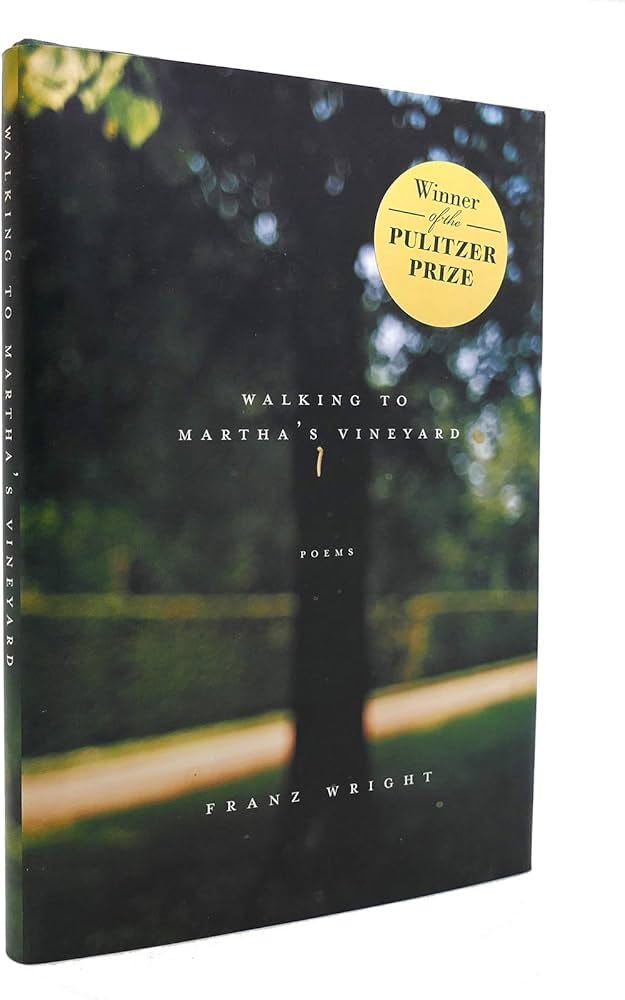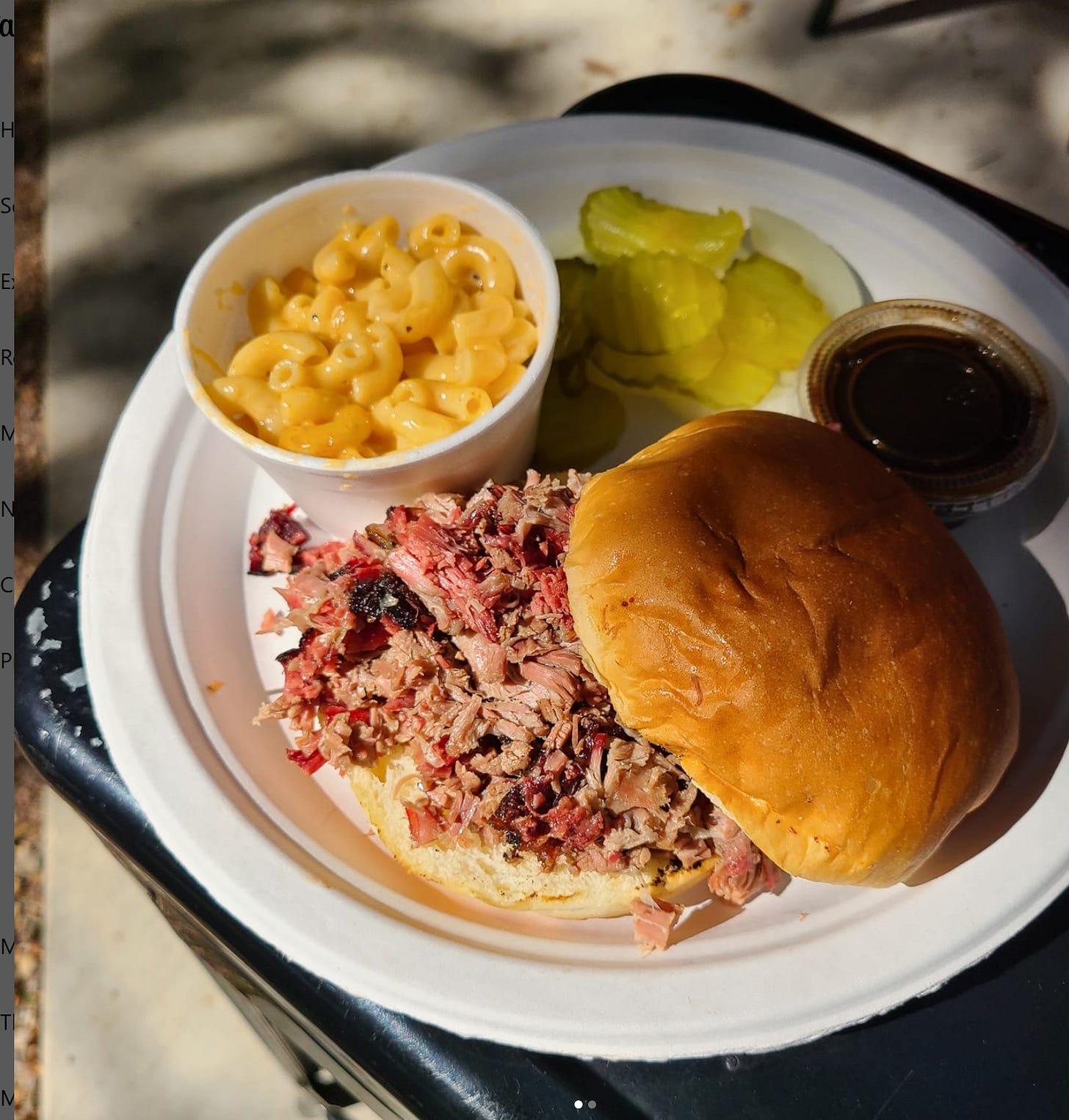May is kind of the unofficial start of summer.
In Canada, Victoria Day weekend serves as a preview of what’s ahead, but in Tyler, the whole month feels like summer because it’s starting to get hot, school is out, and everything is in full green.
Our ministry calendar changes a little bit this time of year as well, with a fewer services and mid-week offerings, and the start of our our Men’s Summer Depth Group.
For the past handful of years, I have spent a few days at the start of May in Chicago with my fellowship for the Center for Pastor Theologians. This year was no different.



And, just this past week, we took a minivacation to the Texas Hill Country to hike, swim, and explore in Pedernales, Longhorn Cavern, and Ink’s Lake State Parks as well as in the Balcones Canyon Wildlife Refuge. This is is the most beautiful part of Texas we’ve visited and, with the rivers winding through rocky hills, reminded us somewhat of New Brunswick. We crammed a lot into a couple of days (we left after church on Sunday, and got back late Tuesday evening), but it was good time.
It’s a wonderful time of year and I’ve grateful for the opportunities and changes that come with it.
Writing
This past month has a been fruitful and rewarding when it comes to writing. I was able to see a few pieces published:
I mentioned Jon Fosse’s Septology series in some previous newsletters. The book meant and a lot to me and so I wrote a longish review essay about it. It was published earlier this month at Covenant, the online journal of The Living Church. I pretty proud of the piece and I hope it piques the interest of some folks who have not yet read Fosse.
Bon Iver’s SABLE fABLE has been on heavy rotation so I’ve been wanting to write about it as well. The folks at Christ and Pop Culture published an essay where I draw out some of the theological themes and movements in the record.
I love writing book reviews. I get to read something interesting, think about it, and share a concentrated take on it that will help other readers determine whether or not it will be a valuable way to spend their reading time. I was privilege to do this for Words Are Not Enough by Garrick V. Allen, which was published over at Reading Religion.
I mentioned my academic article on nineteenth century biblical interpretation in the Journal of Anglican Studies. There was a bit of backlog at the journal when it was accepted, but as of this month, it is now in print.
And then there is this very short piece on slowing down in the summer in our parish newsletter, The Crucifer.
Finally, alot of my time goes into my sermons, the bread and butter of pastoral writing. Here is one from Christ Church Downtown earlier this month:
Reading
This has also been a great month for reading. In my mix-economy of reading (which includes reading print books, listening to audiobooks, and sometimes reading on a screen), I’ve been able to cover a lot of ground precisely because of all of the travelling. Sitting on a plane provides me with a luxurious few hours to read without distraction. Driving to the Hill Country, once my kids get settled, allows me to pop in Air Pods and listen to an audiobook for a longer stretch at a time. Here’s what I’ve been digging into:
In my last missive I mentioned that Esau McCaulley’s Reading While Black didn’t grab me the way it has others. How Far To the Promised Land, which is less of an argument and more of a story, this was deeply moving to me and I would recommend it to anyone. In fact, I think it helped me appreciate Reading While Black more, and I wish I had read it as a precursor rather than after the fact.
In preparing for out St. Basil Fellowship meeting in Chicago, we read each other’s work, as well as a text to frame our sessions. This year it was The Holy Spirit by Gregg R. Allison and Andreas Kostenberger. We read part two, which was all Allison’s work, and then he came to talk about it. He is coming from a Baptistic perspective, so I was not on board with everything he said, but overall it was a useful foray into fundamental theology and pneumatology. To be honest, it hasn’t been that long since I’ve been in school, but I feel like already some of great learning that took place is starting to fade from my memory, so I really appreciate any opportunities to refill the theological well.
One of my fellow fellows(!) Andrew Williams is a poet and we all got a copy of his chapbook A Funeral in the Wild, which I really enjoyed reading. I haven’t read as much modern poetry lately, so it was a treat to look at some theologically-infused poems.
Andrew also suggested I read Franz Wright, who I hadn’t read before. So I picked up his Walking to Martha’s Vineyard. It’s not often I finish a book and then immediately start leafing through again, but I did this with Wright’s work. He was a Catholic convert who was fighting off more than his far share of demons. His work really moved me and I am looking forward to reading more.
Since we are looking at the Decalogue in our Men’s Summer Depth Group, I purchased a few texts to help get me oriented. I found Gilbert Meilaender’s The Will Be Done a useful and straightforward introduction. I’ve paired this with Smoke on the Mountain by Joy Davidman (haven’t finished this one yet!), and selections from I Am The Lord Your God, a collection of essays on the Ten Commandments.
I listened to David Sedaris’ Me Talk Pretty One Day while driving to DFW and back. It is very funny. Sedaris is new to me as well, and sometimes it’s nice to just read something that is light and funny, but has moments of dark honesty as well.
Barbara Ehrenreich’s Nickel and Dimed was the most disturbing book I read this month. By “disturbing” I mean that it opened up for me—in great detail—the struggle of low-wage workers in America (for what it’s worth, I don’t think Canada is much better, but it probably is somewhat better on this score). This book is around 25 years old, but I can’t imagine much has changed, and with the rise in housing costs, probably it has changed for the worse.
Ehrenreich, a journalist, goes undercover as a waitress, maid, and Walmart employee to get a taste of what it takes to make ends meet in these difficult roles. Her insights are not pretty.
My two big realizations were, first, that so much of the kind of life that I think would be pleasant relies on low-wage workers doing things I don’t want to. This is not just or admirable. And second, as much as capitalism is useful, tempering it was some kind socialism seems to be the least harmful way to live.Finally, I read Torbjorn Ekelund’s In Praise of Paths, which is from that lovely genre of books about walking. Ekelund was diagnosed with epilepsy and lost his ability to drive. For him, this opened a whole world of joy that he found in studying and walking on paths. He shares his experience and insight.
Normally, I only share books I’ve been reading, rather than articles and essays, but recently between out 1928 Thursday Mass and the usual Rite I and Rite II services across campuses, plus my background in the Anglican Church of Canada, I have fielded some questions about the liturgical differences in Anglicanism across time and space.
Here is a great essay in Covenant by guest writer Lorraine Mahoney that provides a fairly detailed account of some key distinctives in American Anglican Eucharistic theology (especially the epiclesis).
Please read it if this is at all interesting to you!
Listening
No super-standout music to share this month that I haven’t already shared. I’m realizing, after 1.5 years writing this, that my musical tastes are not necessarily expansive. Still there is very pleasant and enjoyable EP I’ve been listening to on repeat all morning:
Check out Finding Love in Wilmer pt. 1 by The Man The Myth The Meatslab
Watching
This was another month where there was not very much good that I was able to dredge up from the murky depths of modern entertainment. However, there was one good, if difficult film:
Warfare. The film gives an account in real time of the experiences of a couple of Navy Seals deployed in Iraq in 2006.
To be honest, I was kind of hoping for an adventurous and exciting war movie, the ilk of Saving Private Ryan or something like that. Instead, this was a tense and disturbing window into the devastation and confusion of warfare. An important film, riveting, but also not easy to watch.
Easier on the eyes was the landscape I was able to take in driving through the Texas Hill Country, its rugged hills spotted with prickly pear, Indian blanket, Texas verbena, and giant spiderwort.
I should have taken more (…some) pictures. Amy took a bunch. But it was something beautiful to see.
Smelling
There are two olfactory delights I’ve been graced with over this past month:
First, the scents of the Texas Hill Country were as lovely as the sights. I can’t put my finger on exactly what it was that I was smelling, but it was fresh and sweet and light.
Second, some mock orange (I think!) that is growing along our fence. I walk by it when cutting our lawn, and it smells sweet and rich, almost jasmine like. It really is beautiful and arresting.
Tasting
I had a brisket sandwich this past month that has topped everything I’ve tried so far. I am not a Texan, I know, and I am by no means a brisket aficionado. In fact, I can probably count on two hands how many different kinds of brisket sandwiches I’ve eaten. Some have been amazing (Stanley’s!) and some less so.
But this past week, when we were driving through we stopped for barbecue at Broken G BBQ. I believe they are just a food truck, but they have an agreement with a neighboring restaurant so you can eat inside.
The brisket had a lot more natural smoke than Stanley’s or others I’ve tried. And it was also drier (leaner maybe?) but more tender somehow. And the sauce that was on the side was on the darker, sweeter end, with less tang. It married perfectly with the smokey, almost malty brisket, elevating and filling it out. It was great.Well, that’s another month of news from me. If you are a reader and you haven’t subscribed, why not do it? It will make me feel good about myself. Samesies if you send it to someone who might enjoy reading.
Until next time,
Cole+






![How Far to the Promised Land: One Black Family's Story of Hope and Survival in the American South [Book] How Far to the Promised Land: One Black Family's Story of Hope and Survival in the American South [Book]](https://substackcdn.com/image/fetch/$s_!Gsus!,w_1456,c_limit,f_auto,q_auto:good,fl_progressive:steep/https%3A%2F%2Fsubstack-post-media.s3.amazonaws.com%2Fpublic%2Fimages%2F6e32e8d3-6ad0-4b1a-a4b5-8bc7ae180647_300x450.jpeg)




